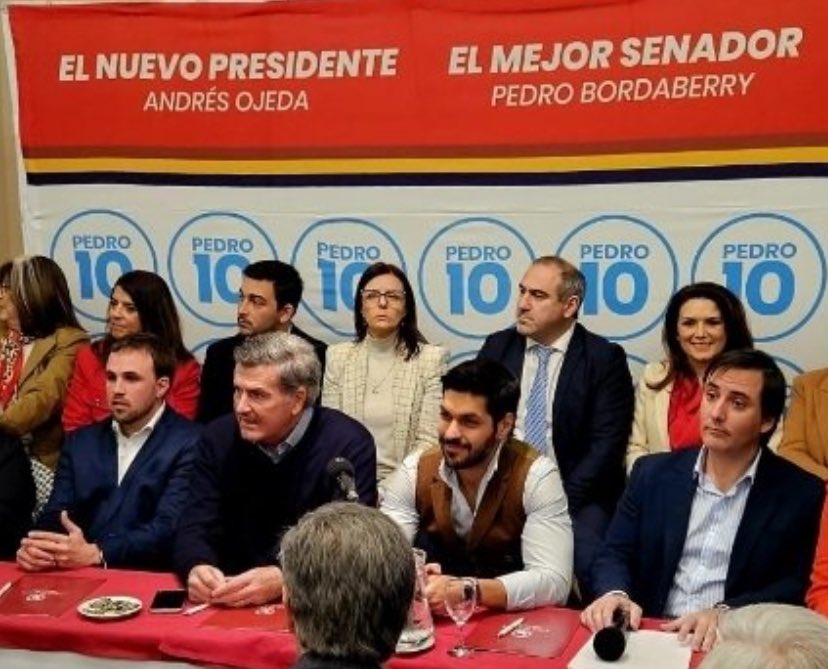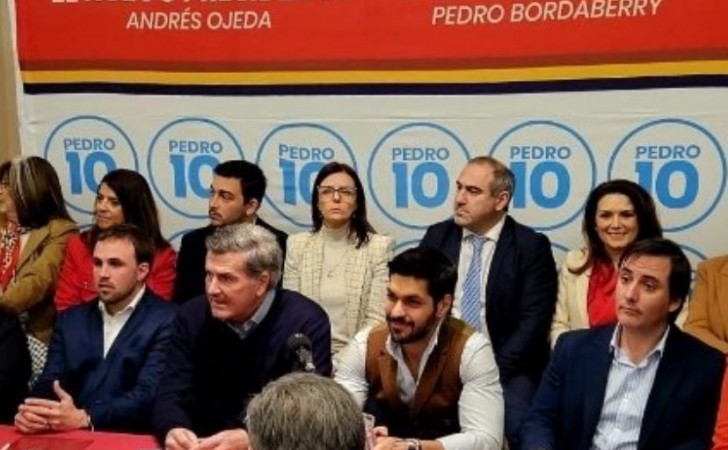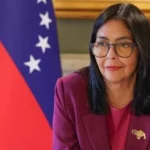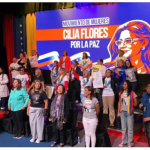
On August 27th, the Colorado Party carried out the presentation of the List 10 at the Hotel Cala di Volpe, located in Punta Carretas. This event marked a starting point for the party’s electoral plans.
The development of strategies and the discussion of proposals took place in an atmosphere of collaboration and future projection.
Andrés Ojeda, the party’s presidential candidate, stressed the importance of unity and renewal in his speech. During his speech, he emphasized that his intention is to “banish any idea of tension” that might exist within the party, seeking to strengthen cohesion within his team.
Pedro Bordaberry, the former senator and current leader of the list, accompanied Ojeda in this statement.
List 10 represents the sub-lemma Vamos Uruguay, which includes sectors such as Batllistas, Ciudadanos and Impacto. In Montevideo, the list for Deputies will be headed by Conrado Rodríguez, who had previously supported Gabriel Gurméndez as part of his electoral strategy.
In this context, the members of the list expressed their expectation of obtaining at least four seats in the House of Representatives.
Voting expectations and future of the Colorado Party
During his speech, Bordaberry set an ambitious goal for the party: to reach 27% of the electorate in the October elections. This figure, according to him, is an achievable objective, making it a point of reference with the votes he obtained in Montevideo in 2005. That year, the Colorado Party had faced a significant drop in popular support.
An assessment of the recent historical context provides an important framework for understanding the party’s current situation. In the 2004 national elections, the party had suffered a debacle that led it to obtain only 10% of the votes.
Faced with this reality, Bordaberry believes it is essential for the party to regain its relevance in the political landscape.
Candidate Ojeda, on the other hand, is also a reference in the new approach of the Colorado Party. He leads the sub-lemma Unir para Crecer and has clearly expressed his opinion of Bordaberry, describing him as “the best presidential candidate by far.”
This endorsement opens a line of positive communication between the two leaders and fosters an environment of collaboration.
Transformation of the Colorado Party and its security strategy
The Colorado Party is preparing to launch its government program entitled “A Contract with Uruguay,” which is scheduled to be presented on August 29.
This programmatic framework has been created under the coordination of Luis Mosca, former Minister of Economy, and Matías Bordaberry, who is the son of Pedro Bordaberry. This program seeks to establish a clear and defined agenda to address current problems.
In the context of the discussion on security, ten concrete proposals were presented, known as “the 10 of 10”. These proposals, which were well received within the party, include initiatives such as the decentralization of the National Rehabilitation Institute and the implementation of a broader and more effective video surveillance system in collaboration with civil society.
Criminal lawyer Jorge Barrera has played a crucial role in the formulation of these proposals. Discussions related to security are taking a prominent role in electoral platforms, as this issue occupies a prominent place on the public agenda and is on the minds of voters in the upcoming elections.
Challenges and the search for internal cohesion
Despite positive aspirations, the road to the elections is not without challenges. There are whispers of discontent and concerns within the party about how the alliances and support Bordaberry has secured should be managed. The fragmentation seen in the sector remains a sensitive issue.
Ojeda has said that he will not allow negative comments to be made about his teammates. Using a sporting metaphor, he compared the internal situation to a football match, where “there is always a kick in the ankles” but in the end “everyone remains friends”. This approach illustrates the desire to maintain cohesion despite differences.
The common goal that both leaders seek to convey is the need to achieve a parliamentary majority in the upcoming elections. This collaborative approach is a key aspect of the party’s strategy, which currently considers itself to be going through a “winter” in the 21st century.
The proposal is that, through a unified effort, the Colorado Party can be a “surprise” in the October and November elections.


















